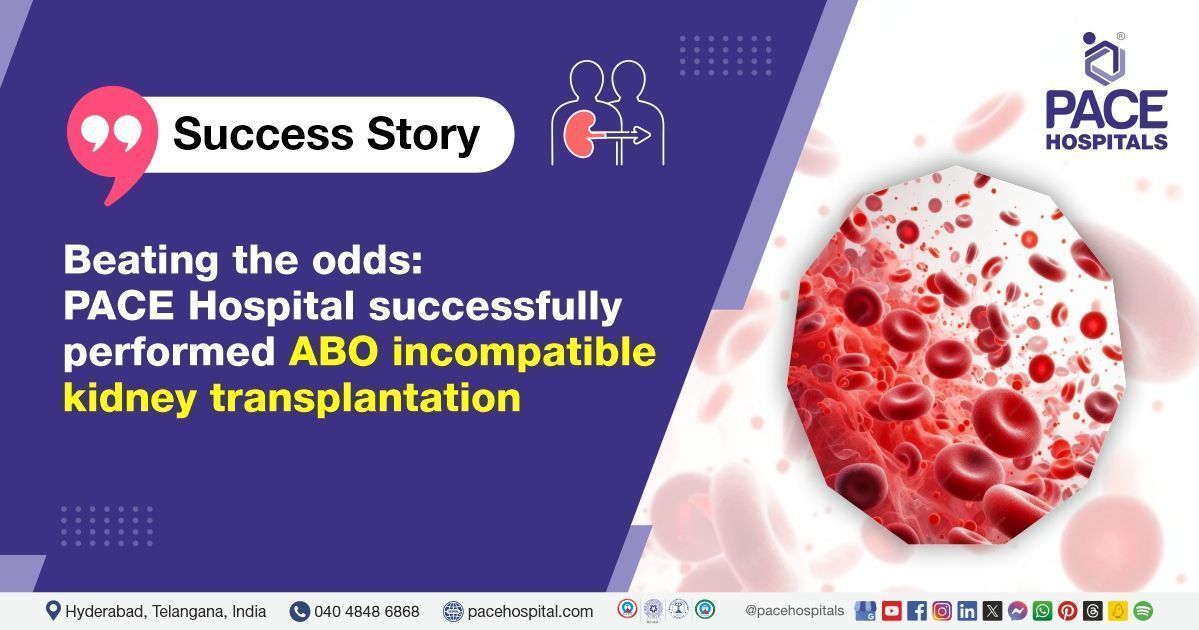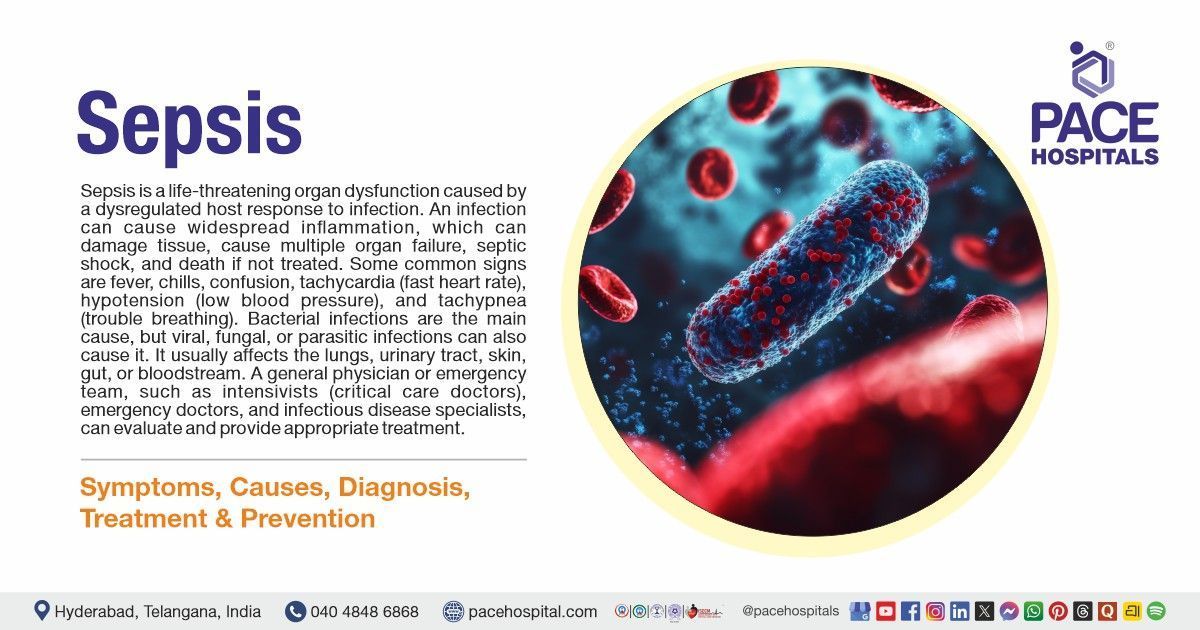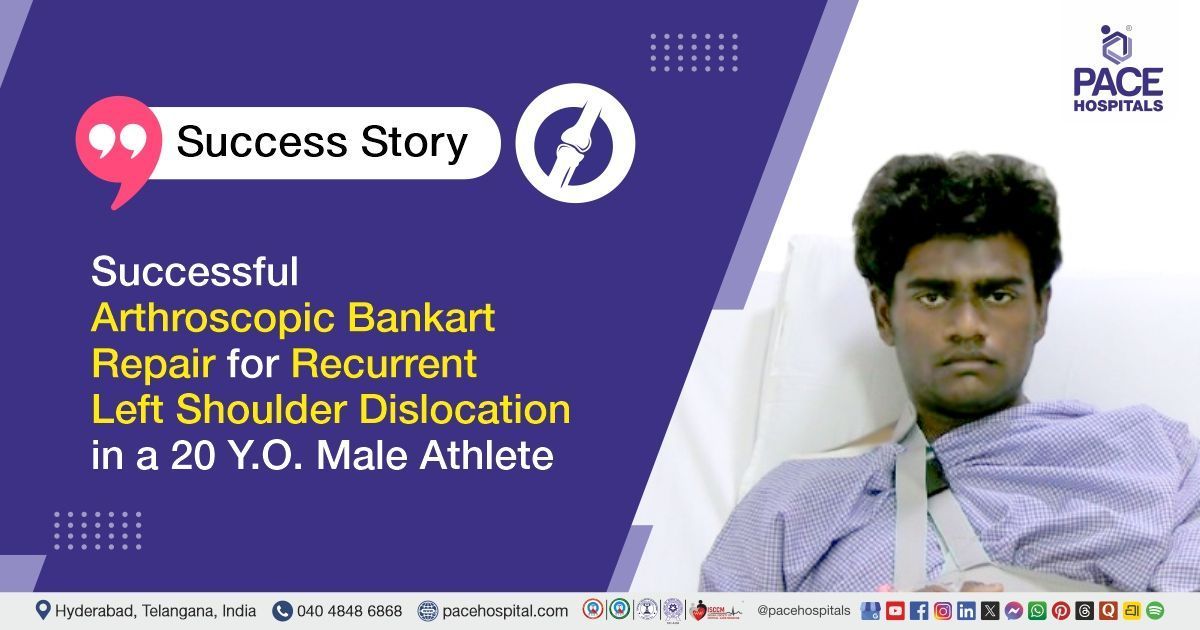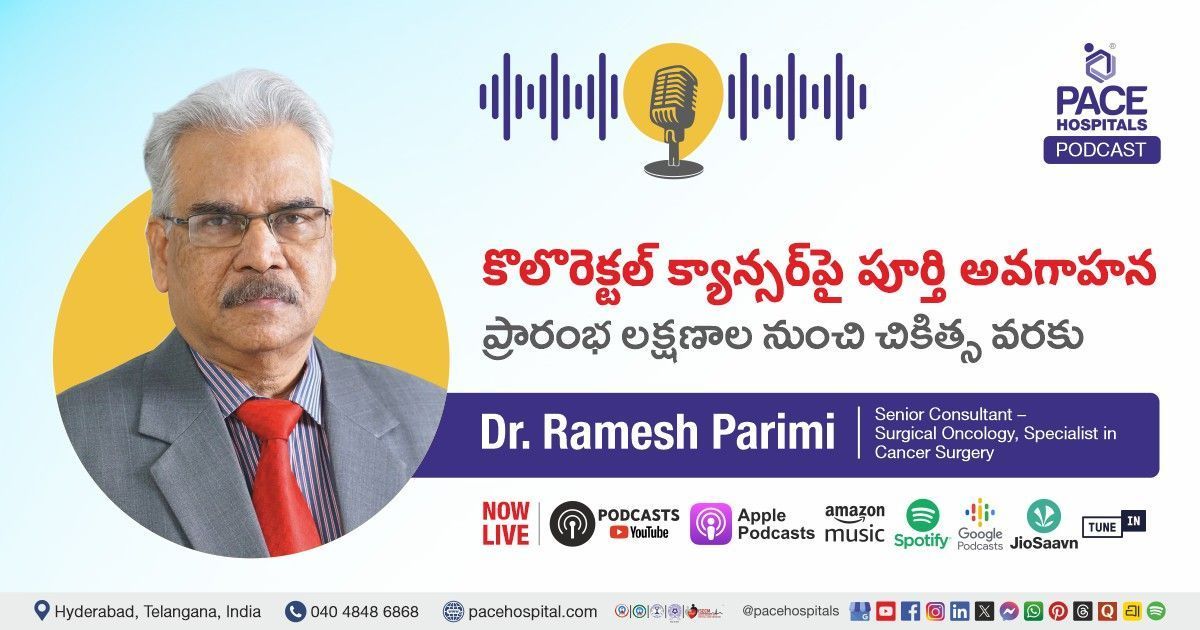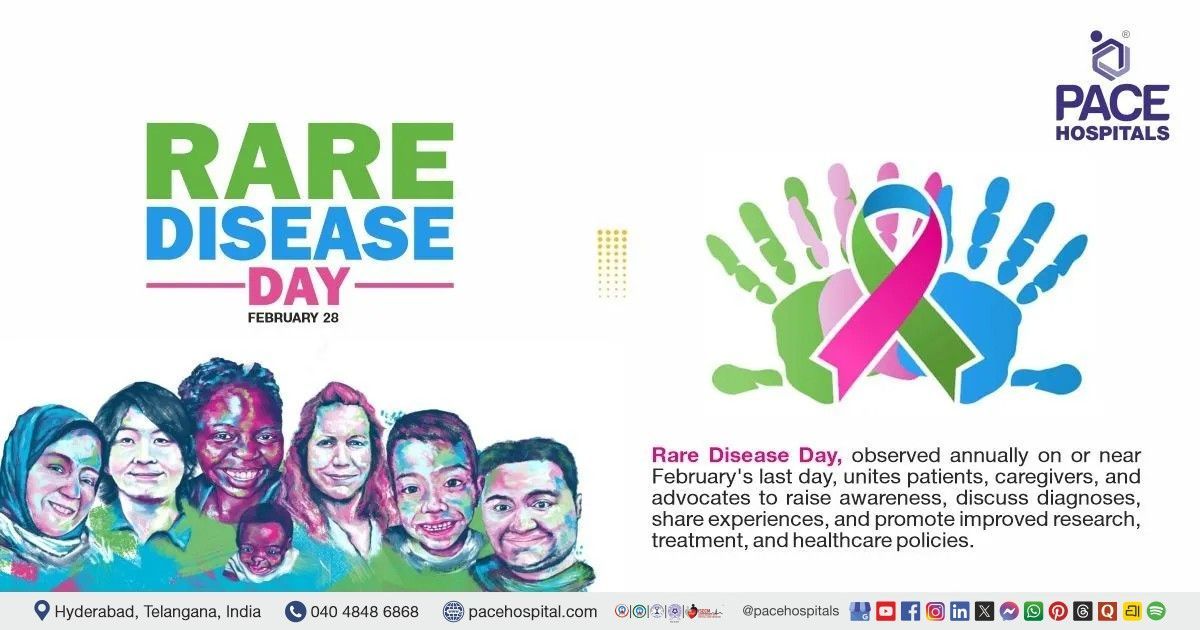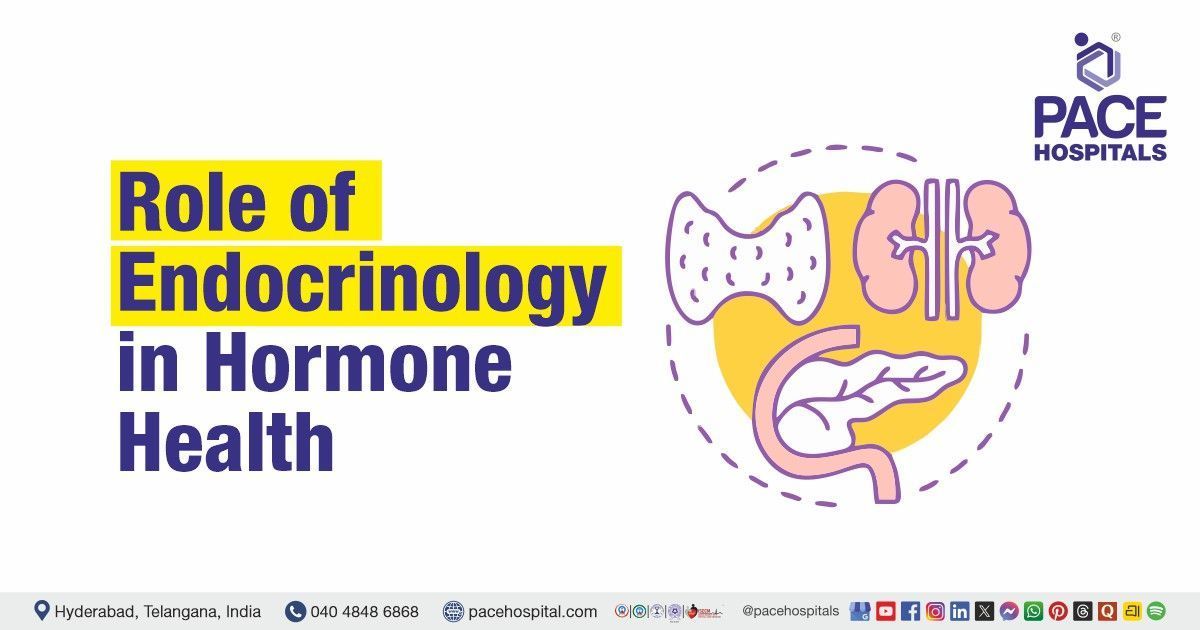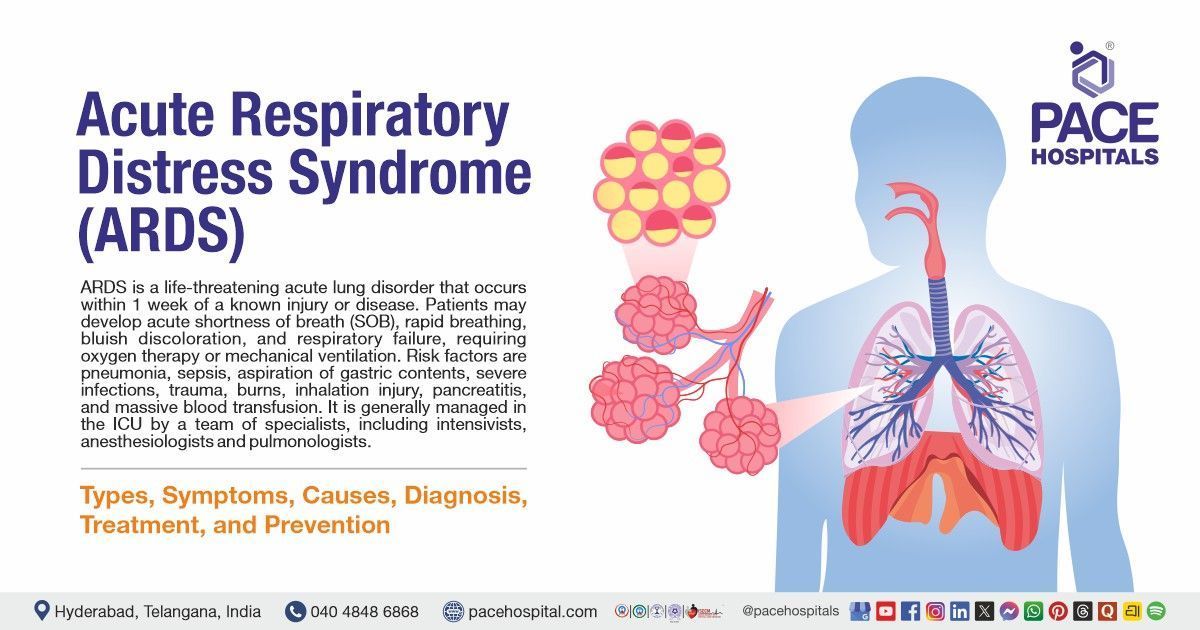Beating the odds: Successfully performed ABO incompatible kidney transplantation | Case study
PACE Hospitals
PACE Hospitals' healthcare team successfully performed an ABO incompatible kidney transplant from the wife of the patient.
A 62-year-old male patient was presented to PACE Hospitals with kidney disease, suspected to be cystic kidney disease associated with type 2 diabetes mellitus and hypertension.
Medical History and Diagnosis
A year ago, the patient suffered from cerebral vascular accident (haemorrhagic stroke). Upon further investigation, it became evident that the patient had developed cystic kidney disease, which might have been aggravated by long-standing type 2 diabetes mellitus and hypertension.
Upon being admitted to PACE Hospitals and after undergoing necessary investigations (especially the eGFR blood tests and urine tests), the patient was diagnosed with Stage 5 Kidney Disease suspected to be Cystic Kidney Disease
Stage 5 CKD (cystic kidney disease) refers to severe damage to the kidneys and value of eGFR less than 15 mL/min/1.73m2. In this stage, kidneys have already failed (stopped working) or are getting very close to kidney failure where the filtering of blood will be stop, leading to build up of waste products within the body resulting in other health issues. Treatment options for kidney fail include dialysis or a kidney transplant.
A
kidney transplant is a surgery performed to replace an injury or diseased kidney with a healthy kidney from a donor. If the living donor gives the kidney to the patient this type of transplant called a living transplant.
Treatment
After consultations with the team of kidney transplant surgeons - Dr. Vishwambhar Nath, Dr. Abhik Debnath and Dr. K Ravichandra, it was determined that a renal transplant was the only way to salvage the patient.
Promptly the patient was put on multiple lifesavings supports and continued haemodialysis. Efforts were made to obtain a kidney from donors. The patient was registered to Jeevandan Cadaver Transplantation Programme to obtain a kidney from cadaver.
After failing to find a matching kidney through the Jeevandan Cadaver Transplantation Programme, and with the patient's condition worsening, the wife of the patient came forward to donate her right kidney.
The story doesn't have a happy ending yet, as the couple's treatment is complicated because the wife has blood type "AB" and the husband has blood type "A." In the past, donors had to match recipients' blood types, but guidelines have been adjusted due to a shortage of kidney donors.
Although the American Society of Transplantation approved the expansion of kidney donation criteria, the decision to accept or reject it is on the respective individual healthcare centres, as there is a significant risk of acute antibody-mediated rejection (AAMR) and early graft loss in such cases.
Many healthcare centres are discouraged while executing these incompatible kidney transplants as these cases require not only the surgical prowess for the separation and attachment of the kidneys but also keen pharmacological insights in potent immunosuppression therapies, which manages the potential medical risk.
After due explanation of the impending medical risk to the patient and his caretakers, consent for surgery and transplant was taken. The patient underwent three sessions of plasma exchange before the transplant. About 2100ml of plasma was exchanged with 5% of intravenous albumin, and two units of fresh frozen plasma (FFP) of the AB group were provided to avoid coagulation and haemolytic reactions (rupture of red blood cells).
Under the supervision of Dr. Kishore Kumar and senior consultant urologist & renal transplant surgeon Dr. Vishwambhar Nath, the transplantation was done. Post-surgical analysis demonstrated a good urine output and immediate flow, which is one of the basic criteria encasing a successful renal transplantation.
Aftermath
After receiving a renal transplant, the patient underwent desensitization to prevent ABO incompatibility. The patient was prescribed various pharmacological agents, including immunosuppressives, prophylaxis with antivirals, monoclonal antibodies, and broad-spectrum antibiotics to avoid nosocomial (hospital-acquired) infections.
Once the drain output collected around 200ml of drained fluid per day, necessary medical tests were done and with the urologist's opinion, the patient was discharged with a drain attached and was advised to approach PACE Hospitals for further follow-up, review, and suture removal.
Before discharge, a thorough dietician's chart along with patient counselling in terms of lifestyle modification were also incorporated.
Desensitization in ABO incompatible renal transplantation
In ABO incompatible transplants, due to differences in blood type antigens (A, B, AB, O), the immune system of the recipient recognizes the transplanted kidney as foreign, triggering an immune response, leading to rejection of the kidney.
Historically, ABO blood group incompatibility (ABO-I) was considered a strong reason for not performing kidney transplants because of the high risk of rejection and early loss of transplanted kidney by the recipient’s immune system. Due to this in the past, ABO incompatible kidney transplants were avoided entirely.
However, the growing gap between the candidates’ number on the waitlist for kidney transplants and the available kidney donors has led to research exploring ways to use kidneys from donors with incompatible blood types. Desensitization protocols are used to allow ABO-I kidney transplants. These protocols include B cell-depleting treatments, plasma exchange, and potent immunosuppressive medications to suppress the immune system.
The goal of desensitization is to decrease levels of anti-A/B antibodies below a specific threshold before and immediately after ABO incompatible kidney transplantation, usually within the first two weeks after surgery, which could otherwise attack and lead to immediate rejection of the new kidney by triggering the immune response against the organ of the donor.
Share on
Request an appointment
Fill in the appointment form or call us instantly to book a confirmed appointment with our super specialist at 04048486868

